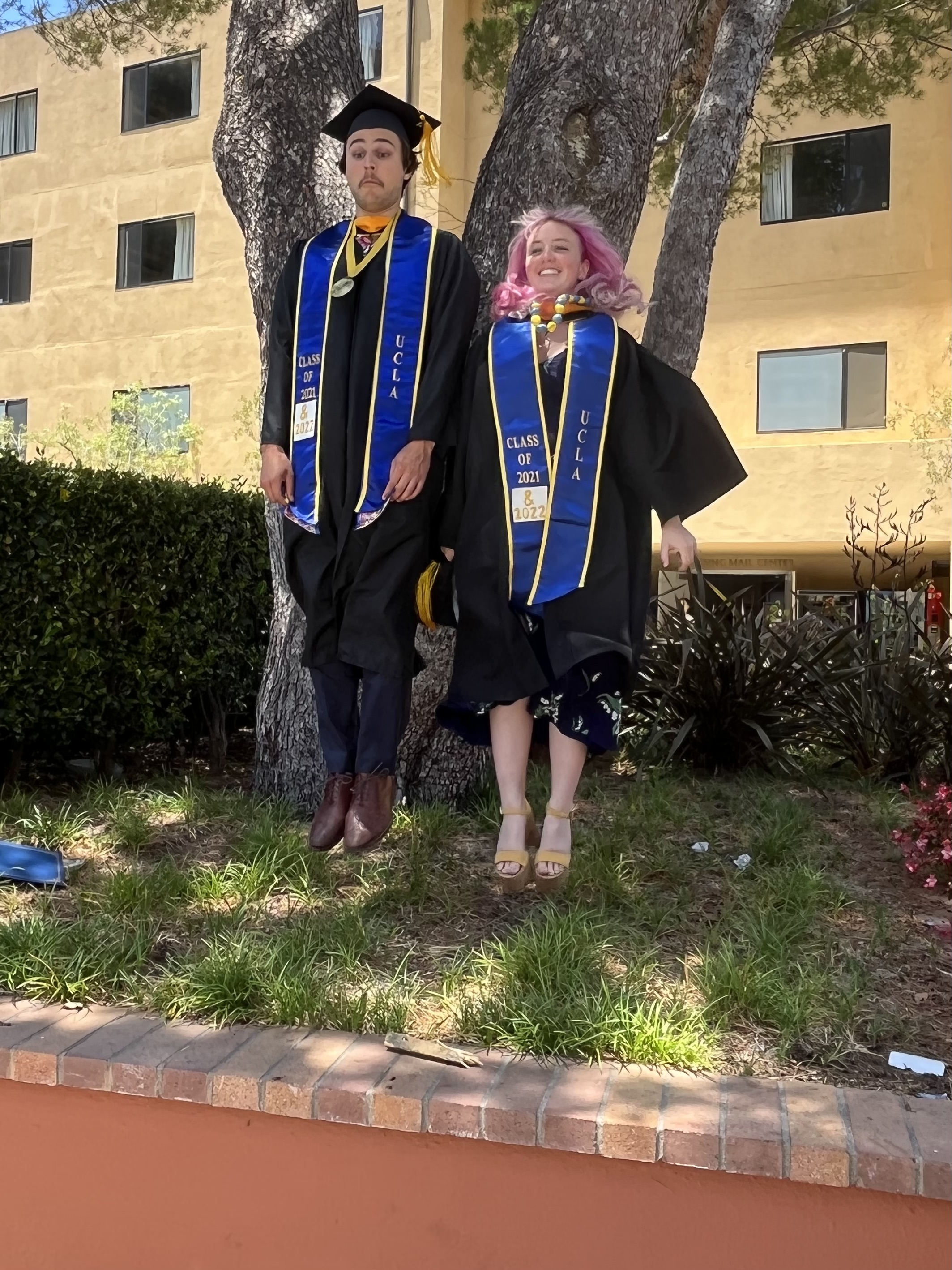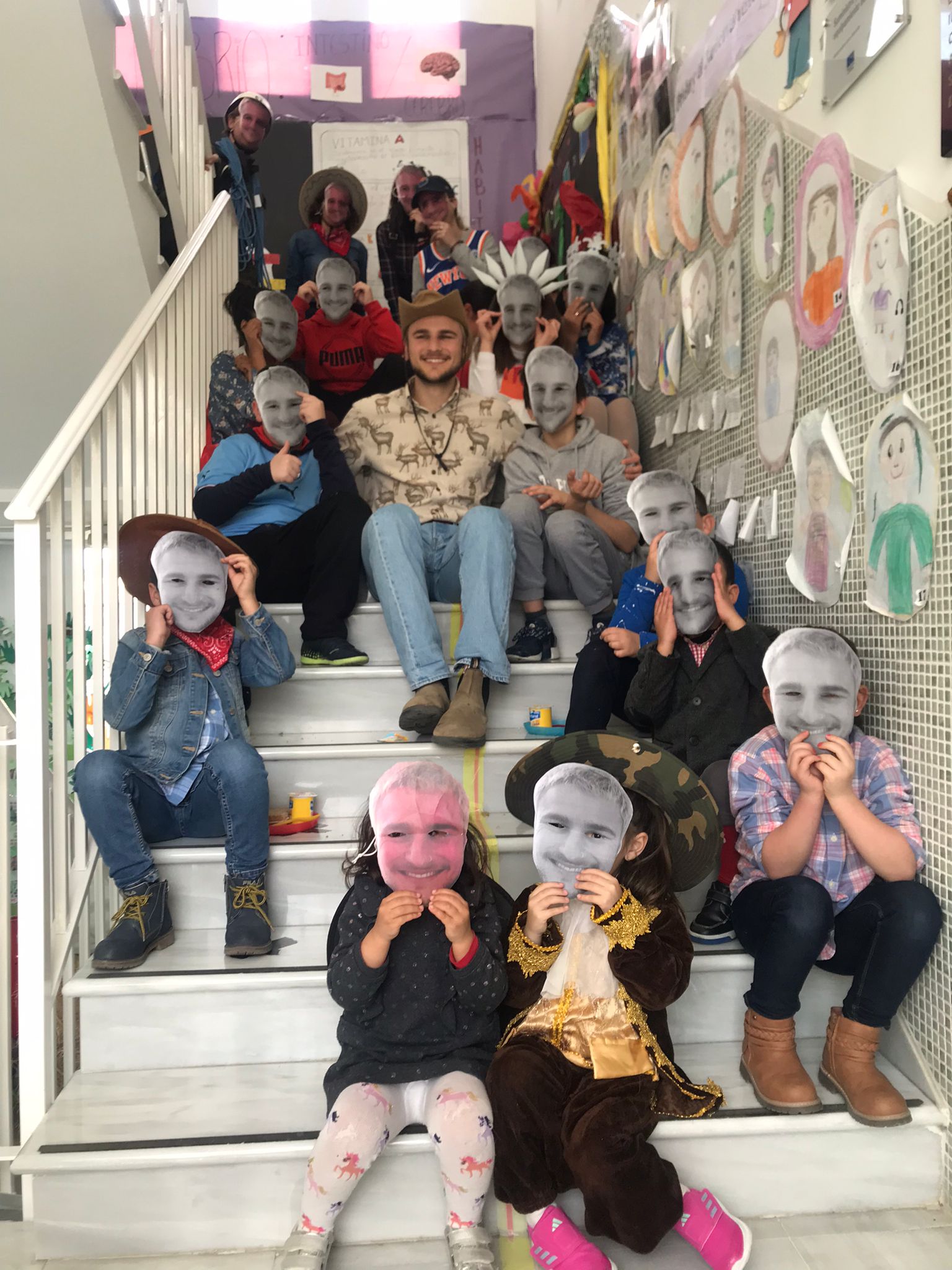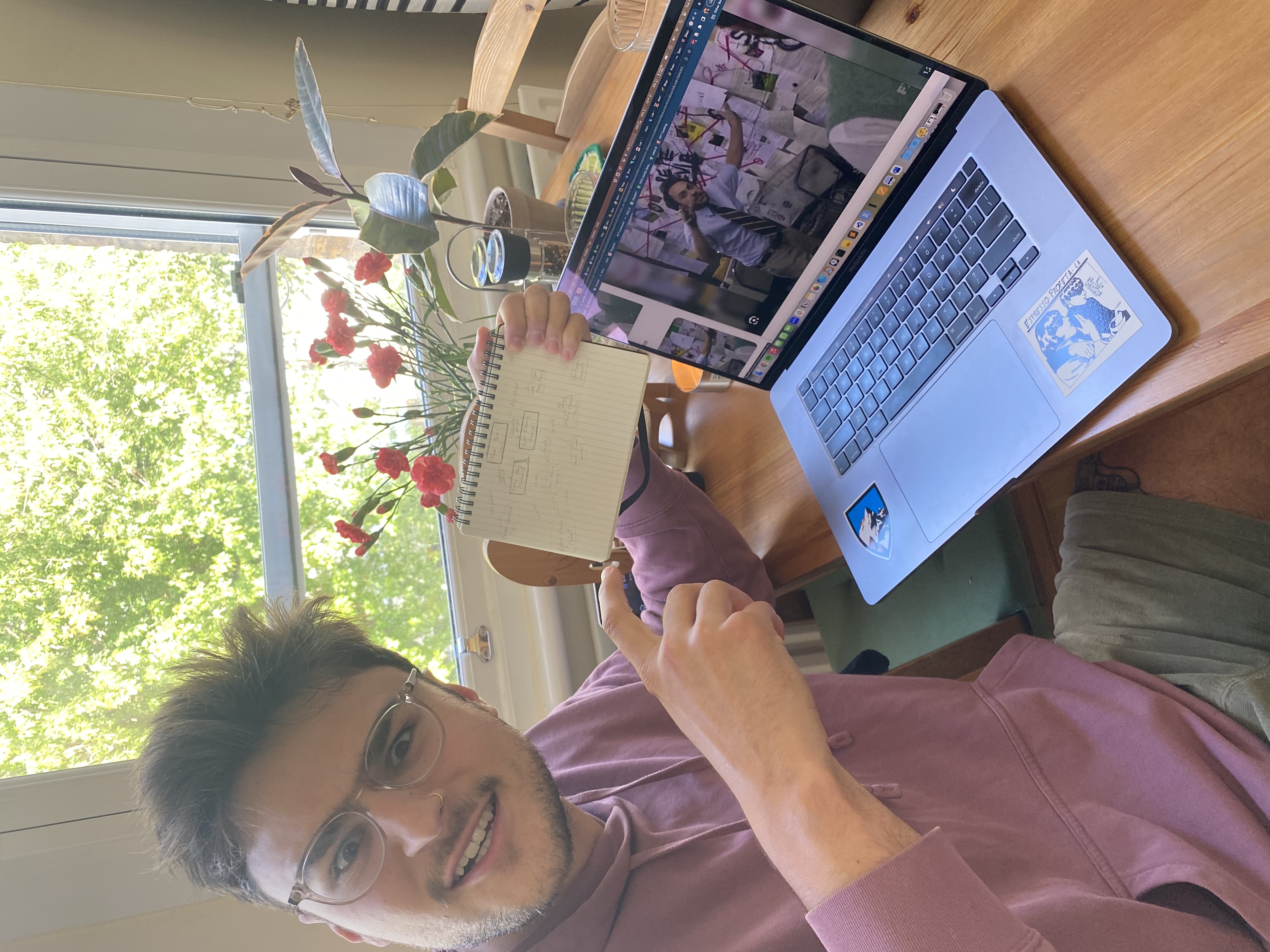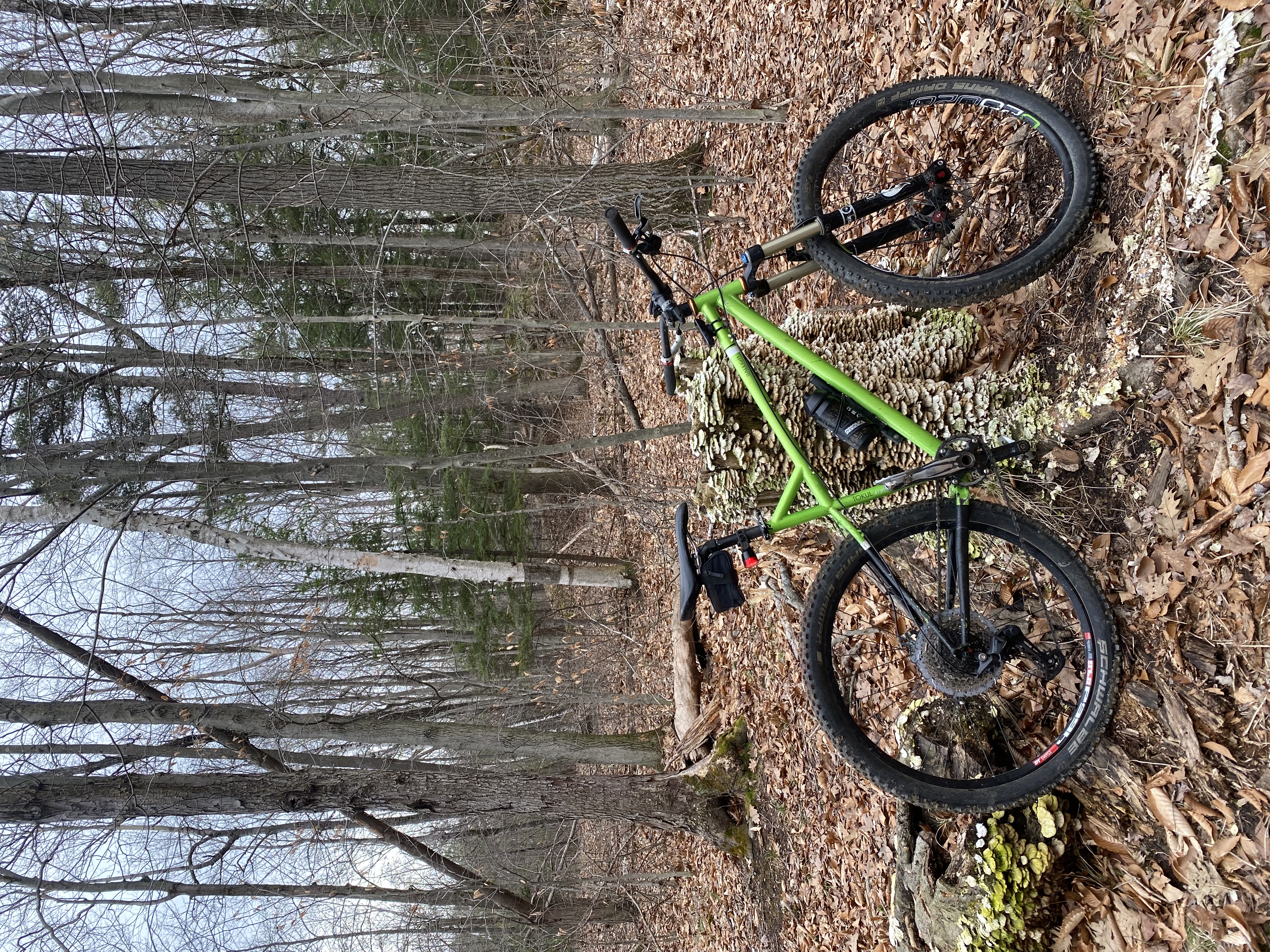Cross-discipline academic journey helps young researcher find career direction: my path to pursuing a PhD in microbial ecology
Niko Darci-Maher March 25, 2024
Choosing a major
As a freshman at UCLA with my major undeclared, I felt that it was impossible to choose between my conflicting interests. I liked physics in high school, and I wanted to learn to code, aligning me with the physical sciences crowd. But I was also excited to learn about brains and human health, setting me up for the pre-med track. Any potential choice of major seemed to close a door on entire worlds I was really curious about. One winter day, bored in psychology class, I looked up an obscure major a friend had recommended, called Computational and Systems Biology. Reading through the requirements, I saw math, statistics, physics, biology, chemistry, and computer science all in one major! Without knowing much about what Computational and Systems Biology really meant, I figured I could solve my indecision amongst the sciences by choosing them all, and declared the major.
Getting connected to undergraduate research
By the middle of my sophomore year, I was enjoying (most of) the Computational Biology pre-req classes, and I was working as an EMT, inspired by some older friends who were working in ambulances to increase their med school prospects. In one of my courses, I watched Dr. Serghei Mangul present on his research, and while I didn’t fully grasp what he was talking about, I enjoyed his lighthearted affect and the genuine interest he demonstrated in explaining the work. Hoping to find an advisor for my capstone project, I reached out to him and a few other researchers who’d sparked my interest. After being ghosted by some, and schooled by another for ignorantly using “Ms.” instead of “Dr.,” Serghei was the only researcher to also be interested in me! I wasn’t loving the overnight shifts in the ambulance, and Serghei was willing to train me to do research, with a potential paid job down the line. I quit my EMT job, joined Serghei’s lab, and started to learn Unix under his guidance.
A few months later, I was working with Serghei in the BIG summer REU program, analyzing the reuse patterns of public genomics datasets. I liked the freedom and curiosity aspects of research, but I missed the excitement and hands-on nature of EMT work. At a faculty-student mixer, I worked up the courage to introduce myself to Dr. Päivi Pajukanta, who had both an MD and a PhD, a combination I hadn’t realized was possible. An MD/PhD felt like yet another way that I could get out of choosing, this time between the computer-heavy exploration of research and the adrenaline-spiking craft of medicine. Serghei was moving to a professor position at USC, and I needed to do my capstone with a UCLA faculty member. I reached out to Päivi and a few other professors doing similar work, and again Päivi was the only one who got back to me. This led me to join her lab, where I began studying a human liver disorder using RNA sequencing data.
A quick taste of grad school
From the middle of my junior year through the end of my senior year, UCLA was on COVID lockdown with online classes, and I spent many long hours at home working on my projects from Päivi’s lab. During this time, I realized I met the requirements to apply for the BS/MS program in my department, which would allow me to stay at UCLA for an extra year and get an MS in Bioinformatics. I was excited about the career doors I thought this program might open, but I was also scared to enter the workforce in a pandemic. My best friends and girlfriend were staying in LA, and my parents had offered to pay the tuition. When this fresh redemption year of in-person classes was offered to me, it felt like a no-brainer to go for it.
During my master’s year, I dove further into my liver genomics research, and began developing a wider awareness of the many applications of computational genomics. I became enamored with the symbiotic mushroom-tree relationships known as “mycorrhizae,” after learning of them in a novel. I was thrilled to find that RNA sequencing was also being applied to study these mysterious systems, and I wanted to figure out a way to study microbial symbioses myself. My mentors stressed that I should keep my momentum going, and follow this new passion to a PhD program. But I felt burned out from almost 5 years of hard work, especially the extra-draining pandemic years. Even if I was going to continue in research eventually, I knew I first needed to try something completely different, and see more of the world outside the university walls.

Taking a break and moving to Spain
Two years earlier on my semester abroad in Madrid, I had learned of NALCAP, a program that hires recent graduates to teach English in Spain for a year. Despite the warnings that leaving science would hurt my PhD admissions chances, I signed up for the program, and moved to Granada, Spain the fall after my graduation.
I was anxious that this decision would cause Päivi to resent me, and that our paper, still unpublished, would go to waste. But after I left, Päivi and I were able to work out a compromise, where I spent some time working on the paper remotely from Spain. Having honored my own needs, I felt way less overwhelmed with the work, and we eventually published the paper by the time my year in Spain ended. Meanwhile, I had a wonderful time being integrated into the loving community of kids and teachers at my Spanish elementary school. My students taught me the value of working with my heart—their endless joy and excitement, even at something small like learning to fold a paper airplane, reminded me not to agonize over all the tiny details in my own life.

Deciding to go back to grad school
When my year of 12 hour work weeks and relaxing tapas dinners finally came to a close, I found myself missing the thrill of puzzling over a tricky technical challenge. I wanted to apply my human genetics knowledge to plant-microbe symbiosis, and I wanted to continue exploring my newfound role as an educator. Once again, I found I could avoid choosing just one of these, by going for my PhD after all. I was about to turn 25, and my paper was just published, so now was probably the ideal time to apply. With the deadlines several months away, I started to prepare.
The PhD application process
I cast a wide net in my PhD applications, more so than at any of my other decision points. Reflecting on the winding path that brought me to this moment, which was defined mainly by taking the first option open to me, I wanted to do a thorough search for the place I’d spend the next ~6 years. I spent countless hours reading every advice blog, going down PubMed rabbit holes, and scanning through department faculty lists. I compiled a massive spreadsheet of potential PhD advisors and programs, and sent a meticulously edited, personally tailored message to every professor on my list.

On a whim, I also reached out to the professor of the single ecology class I’d taken at UCLA, asking for advice on pivoting from human genetics into ecology. He mentioned that a friend of his, Dr. Britt Koskella, studies plant-microbe symbiosis in the Integrative Biology department at UC Berkeley, and he put me in touch. Fast forward to today, and this is the lab that I’m now planning to join next fall! As for my spreadsheet, almost all of the programs I had rated as a sure thing came up short, whether it was one professor deciding not to take students after all, or a department just not liking my application as much as I thought they would. Despite my attempt to conquer the uncertainty of admissions with lots of planning (and over $1,000 in application fees), it was yet another chance connection that led me to my new academic home base.
In all fairness, I was admitted to several of the programs where I applied without an “in,” and I think these labs would have been great options too. For me, Berkeley stood out for several reasons: first, I felt an immediately comfortable personal fit with the lab group and PI (Principal Investigator); second, I grew up in the Bay Area and already have a deep community of family and friends there; and third, becoming a professor is a path I may want to follow, making the reputation of my school matter more than it might otherwise. Of the places I applied, the Berkeley lab’s research is actually one of the least aligned with mycorrhizae, the topic I originally set out to study, but their work is still very closely related, and I feel that this choice will be best for my life as a whole.
Looking back, I would still recommend most of the high-volume strategy that I used in admissions, even though rejections do sting. Most importantly, my many conversations with professors I found compelling were super valuable, because they gave me a fledgling network in this new field. If I had to apply all over again, I would still make a point to get on the phone with as many professors as I could, because you never know what one little spark might lead to. The professor I was talking to at UC Davis, where I didn’t even end up getting an interview, recommended that I apply for an ORISE fellowship for the months leading up to my PhD. I applied to one of these positions with the US Forest Service, led by her collaborator Dr. Andrew Groover, and ended up getting the fellowship. Because of that conversation, I am now writing this post from Burlington, Vermont, where I get to spend the next five months learning new techniques in a forest biology lab before starting at Berkeley.

On the flip side, if I could go back in time, I would have applied only to programs where I felt a really solid connection with at least one professor. I think I wasted a fair amount of time and money applying to “safeties,” which were less prestigious schools where I didn’t bother to connect much with the faculty, and I was rejected from all of these without interviews. Unlike undergraduate admissions, I think the relationships matter much more here, and you should only apply somewhere where it seems a professor is truly prepared to bring you into their lab. This is especially true in the direct-admit programs I applied to, whereas it’s more possible to apply “cold” in rotation-based programs.
In the end, it’s just work
As I move into this new phase, I’m sure that I will make more mistakes, and encounter more moments where I realize I want to be working on something different. I echo the advice one professor gave me during BIG Summer: that your most important career skill is your ability to pivot. The world around us and our own desires are constantly changing, not to mention the goals of funding agencies, so openness and flexibility are super important in a scientific career. I also think that some of the most exciting moments in science come from people transitioning and causing cross-pollination between seemingly unrelated disciplines.
Lastly, I want to emphasize that school and research can be really wonderful ways to spend your time, but they will always be some form of work, and not even the most ideal work situation deserves to take over your entire life. Factors like having a strong support network, being able to explore your hobbies, enjoying your coworkers on a personal level, and caring for your mental and physical health should be first in your mind above any technical aspects of a job or research position. With those needs met, I think you can tolerate a lot of variance from what you think your ideal work setup is. All of my important career decisions so far have been largely decided by very human and arbitrary forces, and I think that’s a good thing. If you’re thinking of following a path similar to mine, I just hope you remember to breathe, be confident in yourself, and remember that any of your little exploratory threads can always grow into an exciting next step in your life. Good luck!
Other resources that helped me
- So, you want to go to grad school? Nail the inquiry email — by Dr. Jacquelyn Gill, Paleoecologist at University of Maine
- How to Apply for Grad School in Ecology and Evolution — by Erin Mordecai, Ecologist at Stanford
- Some Modest Advice for Graduate Students — by Dr. Stephen Stearns, Zoologist at University of Basel in Switzerland
- Reply to Stearns: Some Acynical Advice for Graduate Students — by Raymond Huey, Zoologist at University of Washington
- Example Statement of Purpose from Stanford
- Statement of Purpose guidance from UC Berkeley